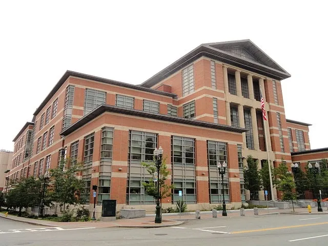
Understanding the Massachusetts Office of Adult Guardianship and Conservatorship Oversight — and What to Do if You Receive a Letter of Non-Compliance
- by Erin Bradbury

- by Erin Bradbury
was established to strengthen accountability, transparency, and consistency in the Commonwealth’s guardianship system. Its mission is to protect adults who have been deemed incapacitated by the Probate and Family Court by ensuring that appointed guardians and conservators meet their ongoing reporting and care obligations.
Guardians and conservators play a critical role in the lives of individuals who cannot fully manage their own affairs due to illness, injury, or disability. The OAGCO provides oversight and support to ensure these appointed individuals act in the best interests of the protected person, manage assets responsibly, and promote personal well-being and independence whenever possible.
In Massachusetts, all guardians and conservators must regularly report to the Probate and Family Court using specific court-approved forms. These reports help the court monitor the ongoing condition, care, and financial management of the protected person.
These forms are available on the Massachusetts Probate and Family Court website, and timely filing is a legal requirement.
If you receive a Letter of Non-Compliance from the court or the Office of Adult Guardianship and Conservatorship Oversight, it means that your required report — such as a Guardian Annual Report or Conservator’s Accounting — has not been received or is incomplete. This letter is a formal notice, but it is also an opportunity to correct the issue before the matter escalates. It typically includes:

1. Review the Letter Carefully
Identify exactly which report is missing and when it was due. Note any filing instructions or deadlines.
2. Complete the Required Forms
Download the correct form(s) from the Massachusetts Probate and Family Court website and complete them thoroughly. Include all relevant attachments, receipts, or supporting information.
3. File with the Court
Submit the documents to the same division of the Probate and Family Court that issued your guardianship or conservatorship appointment. Filing can often be done in person, by mail, or electronically through the eFileMA system.
4. Notify the Office or Court Clerk
Once you have filed, contact the oversight office or the clerk’s office to confirm receipt. Proactive communication demonstrates good faith and can help avoid a hearing.
5. Keep Copies of Everything Maintain a complete copy of all filings, receipts, and correspondence for your records. You may need them for your next annual filing or to verify compliance.
If you fail to respond to the notice, the matter may be referred to a Probate and Family Court judge for a compliance hearing. The court has authority to:
The goal, however, is compliance, not punishment. Most cases can be resolved by filing the overdue documents and maintaining communication with the court.
To remain compliant and avoid future issues:
The Massachusetts Office of Adult Guardianship and Conservatorship Oversight serves as a vital safeguard for some of the Commonwealth’s most vulnerable residents. Its oversight ensures that guardians and conservators uphold their duties with transparency and integrity.
If you receive a letter of non-compliance, don’t panic — treat it as an opportunity to re-engage with the reporting process and demonstrate your commitment to the welfare of the person you serve. With proper documentation, timely communication, and accountability, you can maintain compliance and continue providing compassionate, lawful care.
At the Law Office of Erin Bradbury, we specialize in guardianship matters. We are just a phone call away. We can help you protect what matters most, so call if you need help with your loved one’s matter.